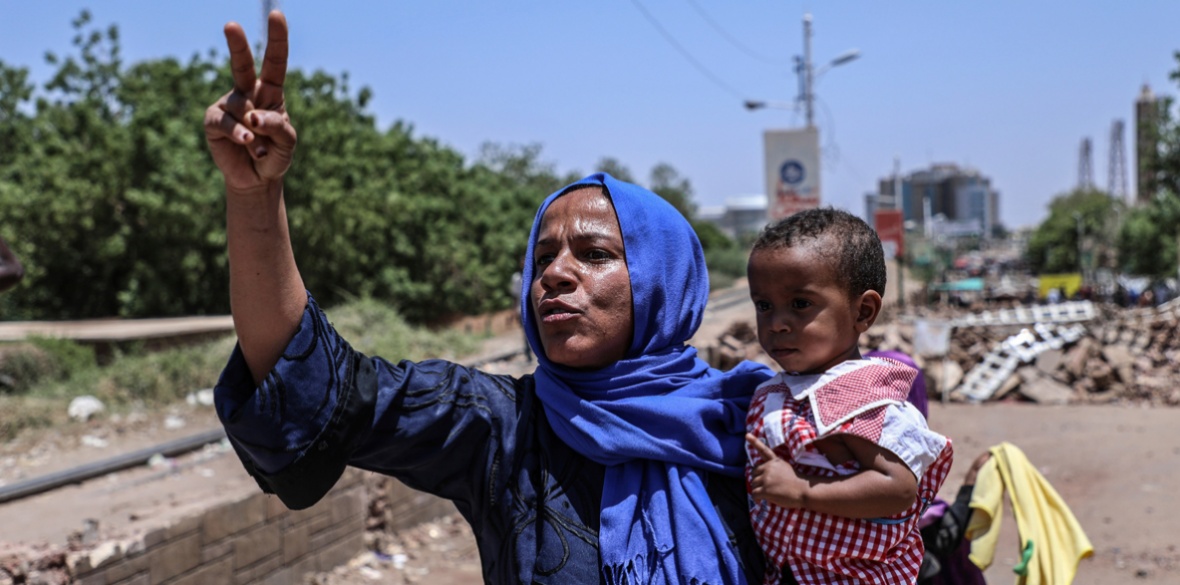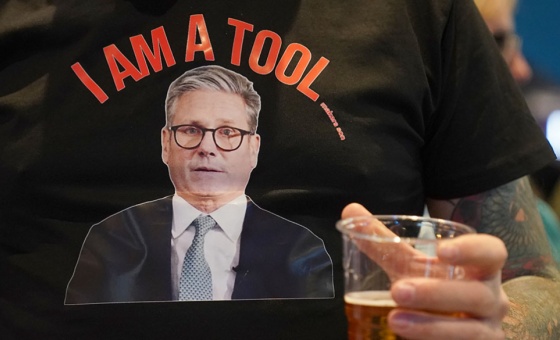This is the last article you can read this month
You can read more article this month
You can read more articles this month
Sorry your limit is up for this month
Reset on:
Please help support the Morning Star by subscribing here
THE revolutionary transformation in Sudan faces a critical test over the coming weeks.
Last Tuesday the Supreme Military Council broke off negotiations with the civilian Freedom and Change Alliance.
On Thursday it started to roll back some of the key gains of the past six months — announcing the reimposition of state control over trade unions and making independent trade unions once more illegal.
The Military Council did so for good reason — because it knows the potential power of the organised working class to carry through the democratic revolution.
Sudan’s revolution started in one of the most impoverished regions of Sudan, in the Blue Nile province on December 13 and quickly spread to the major cities, culminating in mass demonstrations in Khartoum on December 19. By then those mobilised in the city centres were numbered in millions.
The demonstrators were young. A big proportion were women and they were largely secular. It was a mass response to years of repression and marked a transformation of attitude in a country that had been run by a Muslim Brotherhood terroristic dictatorship for over 30 years.
By April 11, after four months of democratic mobilisation and after splits developed in the armed forces, the regime’s leader, General Omar al-Bashir, was at last forced to resign. However, those he represented are still at large and have regrouped.
Counter-revolution is now on the march — although, probably critically, its forces, as represented on the Supreme Military Council, are divided.
On the one side are those funded by Qatar, Turkey and countries associated with the Muslim Brotherhood.
On the other are those associated with the UAE, Egypt and above all Saudi Arabia. Saudi Arabia has over recent years paid for a significant part of the Sudanese army to fight in Yemen.
A couple of weeks ago it transferred $500 million to Sudan’s Central Bank. It is ultimately backed by the United States.
A key figure in the current counter-revolutionary offensive is Mohamed Hamdan Hemeti. Previously leader of the Janjaweed militia, and orchestrator of the genocidal killings in Darfur, his forces were integrated into the Sudanese army as the “Rapid Reaction Force” and operated as the old regime’s paramilitary militia.
They are still operating in their thousands in Sudan’s cities and were responsible two weeks ago for the killings of demonstrators encamped outside the military headquarters.
“General” Hemeti is second in command of the Supreme Military Council. A mercenary and opportunist, his Rapid Reaction Force is currently funded by the UAE and Saudi Arabia and also receives millions of euros from the European Union to police Sudan’s western, southern and eastern borders.
In addition to these splits in the military leadership, the army’s junior ranks and rank and file have shown themselves on occasion willing to be supportive of the democratic forces and are resentful of the “Arabisation” of the army and the dominance of the paramilitary Rapid Reaction Force.
In the face of the counter-revolutionary offensive the democratic forces have demonstrated remarkable courage and fortitude.
They regrouped immediately after the military assault and still occupy central Khartoum. Their numbers have never fallen below 100,000 in a tented city and are supplied with food and sustenance by many more.
They are overwhelmingly young. They are active and organised — with music, theatre and discussion groups.
The demand of the Freedom and Change Alliance is for the immediate transfer of power to a civilian-led government and elections for a parliamentary legislature.
The proposal refused by the Supreme Military Council last week was for the military to have a third of the seats on the new interim government council with two-thirds from the Alliance. The military is demanding two-thirds.
The response of the Alliance has been to seek pledges of support for a general strike from organised workers.
These have now been forthcoming from trade unionists in transport, the docks, airports, airlines, the banks, health professionals, the universities and schools and sections of private industry.
This two-day general strike has been called to begin tomorrow. Adding strength to the Alliance has been the arrival in Sudan on Sunday, despite a death sentence placed on his head, of Yasser Arman, second in command of the Sudanese People’s Liberation Army (North).
He was accompanied by General Hamrese Galab of the SPLA(N). The SPLA is pledged to support the Democracy and Freedom Alliance.
The Sudanese Communist Party remains a key organisation in maintaining the unity of the democratic alliance.
Its paper is now published three times a week and its social media reach even more. Solidarity and understanding from all progressive organisations in Britain will be critical in the testing days ahead.








